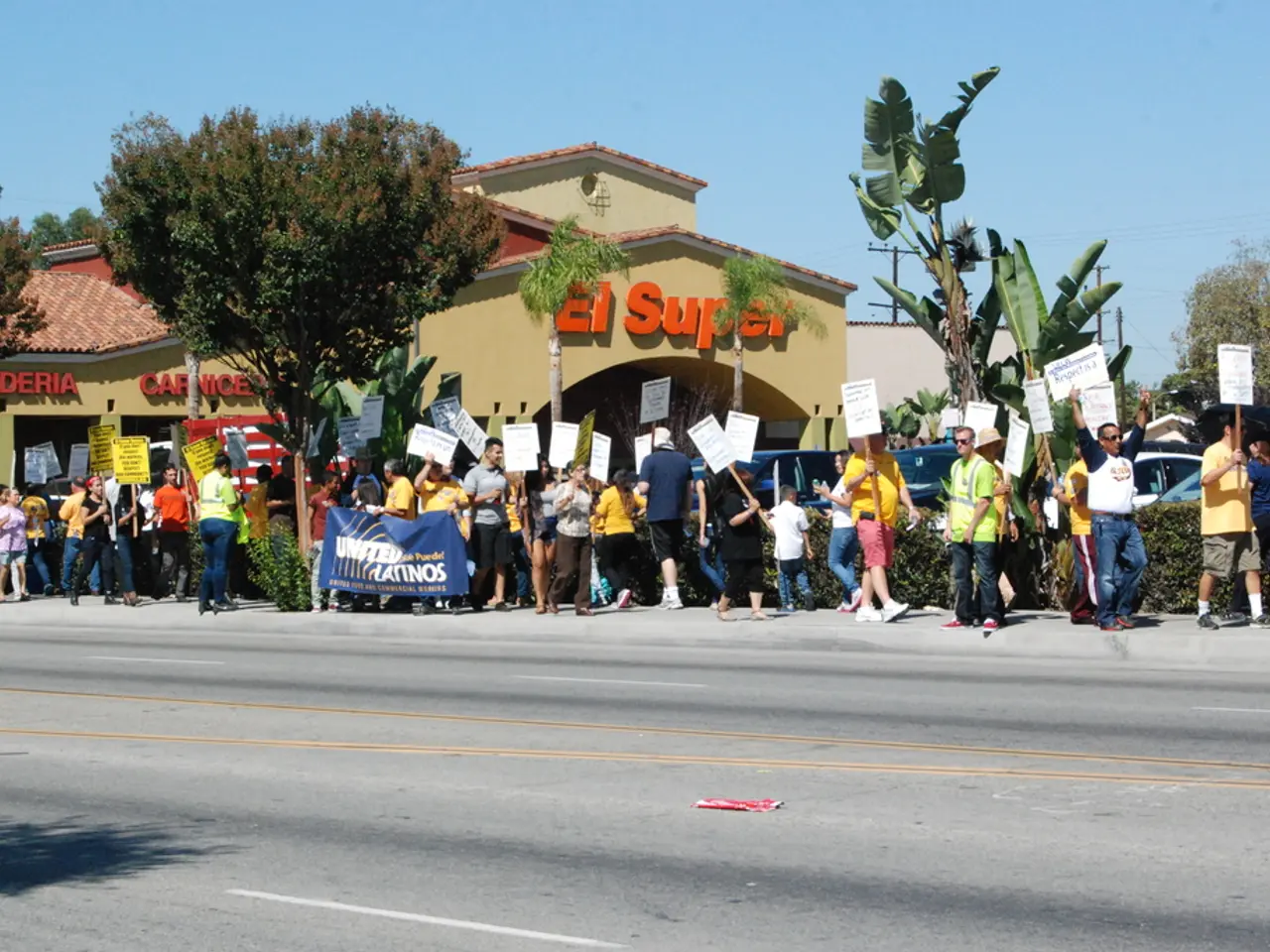Berlin's Changing Political Tides: CDU Leads, The Left Gains Substantial Ground
Berlin's Conservative CDU party maintains its political dominance; The Left party experiences a notable surge in votes - Conservative Party (CDU) maintains stronghold in Berlin, Left Party sees significant increase in votes
Here's the lowdown on Berlin's political scene in 2025: it's a veritable hot potato, with shifting alliances, dynamic fragmentation, and new power players on the rise. The CDU, for now, remains the dominant party, but things are heating up!
The Left (Die Linke) is causing quite a storm, stretching their influence considerably, tipping the scales to a whopping 19% of the vote—triple their value from six months ago! Meanwhile, the Greens are still in the game with 15%, despite suffering a five-percentage-point loss. The SPD takes a two-point improvement, scoring 14%. As a result, the current black-red government won't be able to muster a majority.
But don't count them out just yet—the AfD slips slightly, dropping two percentage points to 13%. The Alliance Sahra Wagenknecht (BSW) nearly halves its poll result, settling at a modest 4%. Berliners will head to the polls again in September 2026 to elect a new House of Representatives.
Here's the breakdown:
- CDU (Christlich Demokratische Union)
- Federal capital (Berlin)
- Poll results
- Kai Wegner
- Infratest dimap
- RBB (Rundfunk Berlin-Brandenburg)
- The Left (Die Linke)
- Alliance 90/The Greens
Beyond the headlines
The political landscape in Berlin mirrors broader trends in German and European politics. Old political orders are crumbling, and new paradigms are tentatively being explored as social tensions and geopolitical uncertainties heighten. The city's political scene is part of this wider quest for consensus and direction, in the face of challenges like polarization and security concerns related to conflicts, such as Russia's war against Ukraine.
Notably, the CDU's reign is being challenged by The Left's significant gains, signaling a shift in voter preferences that acknowledges both conservative traditions and more progressive or leftist agendas. The Greens and the SPD retain their relevance, with the latter still playing a crucial role in coalition discussions and governance frameworks.
At the federal level, Chancellor Friedrich Merz (CDU) embraces a more assertive European and foreign policy stance, which also impacts Berlin's political discussions. His administration is focused on European unity and strengthening Germany's role on the international stage.
In this complex context, the CDU's dominance faces a major test, with The Left's gains and active involvement from the Greens and SPD shaping Berlin's political discourse.
The Commission, due to the changing political landscape in Berlin, has been asked to submit a proposal for a directive on the protection of workers from the risks related to exposure to ionizing radiation in the context of the city's growing focus on policy-and-legislation and politics. This development follows broader trends in German and European politics, where the crumbling of old political orders and the emergence of new paradigms have heightened social tensions and geopolitical uncertainties, with conflicts such as Russia's war against Ukraine raising security concerns.





